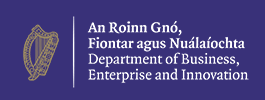
Businesses can hold AGM’s, general meetings and creditors’ meetings by electronic means
Examinership increased to 150 days
Threshold at which company is deemed unable to pay its debts increased to €50,000
30th July 2020 Today the Companies (Miscellaneous Provisions) (Covid-19) Bill 2020 was passed by the Dáil. The Bill makes temporary amendments to the Companies Act 2014 and the Industrial and Provident Societies Acts 1893 – 2018 to address issues arising as a result of Covid-19. The Bill will ensure that 240,000 companies and 950 industrial and provident societies in Ireland will be able to hold their Annual General Meetings (AGMs) and general meetings by electronic means. It also makes provision in respect of business solvency by increasing the period of examinership to 150 days and increasing the threshold at which a company is deemed unable to pay its debts to €50,000. These important amendments will provide additional breathing space to struggling businesses and complements the extensive supports provided in the July stimulus package.
Minister Troy stated that:
“The Companies (Miscellaneous Provisions) (Covid-19) Bill is an important first phase of work in the area of company law to address real practical issues facing business in terms of compliance and pressures on solvency.
It ensures that businesses can hold their Annual General Meetings and general meetings by electronic means. AGMs are an important forum for members to approve the accounts, appoint auditors and hold the directors accountable for the affairs of the companies and co-operatives. In addition, general meetings need to be held if a company or co-operative is commencing a range of activities, for example a merger or members’ voluntary winding up. It is a welcome development that these activities can now be facilitated electronically and held in compliance with public health guidance on social distancing and travel restrictions.
Significantly the legislation also makes amendments in respect of insolvency. It increases the threshold at which a company is deemed unable to pay its debts and can be wound up by the courts. There are shops, cafés and hairdressers across Ireland struggling right now, this change will mean that these businesses will not be wound up for relatively small debts of €10,000. It further demonstrates the Government’s commitment to backing business, supporting economic recovery and making sure as many people as possible have jobs to go back to.
The Bill also provides for an additional 50 days in the examinership process, bringing it to a total of 150 days. We want to ensure that viable companies and co-operatives have sufficient breathing space to restructure and trade through the crisis. I think this amendment gives that.
Importantly, the amendments are temporary in nature and only operational for the duration of the interim period, initially until 31 December 2020, with the option for extension by Government order should it be considered necessary. This gives us the flexibility we need to deal with the evolving nature of the crisis while also guarding against any unintended consequences.
The interim period will serve as a trial run for the more practical amendments contained in the Bill, like the ability to hold meetings electronically. This will allow us to consult with stakeholders on what is working and what is not and ensure that when we are in a position to amend the Act permanently it will be with the benefit of this experience.”
